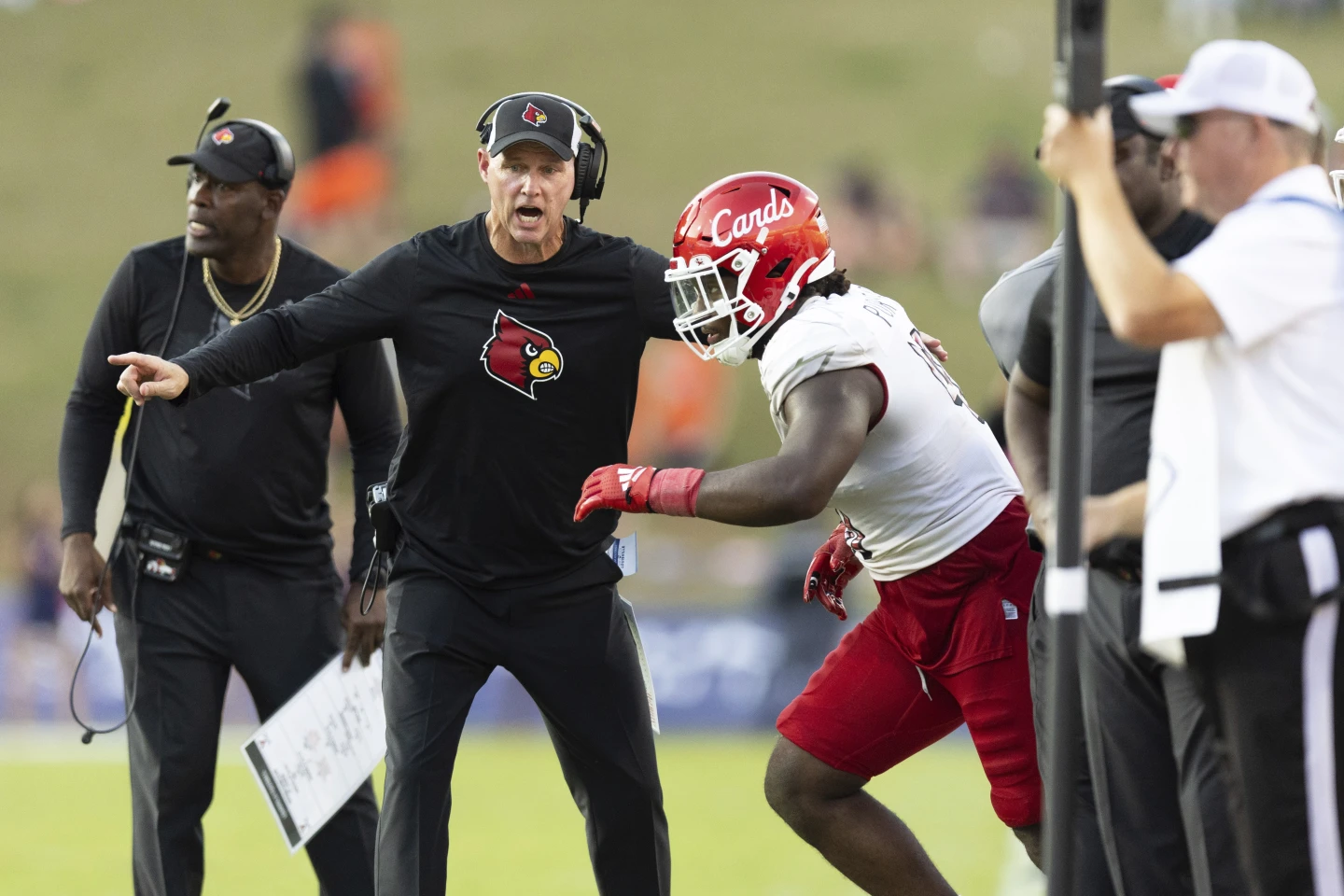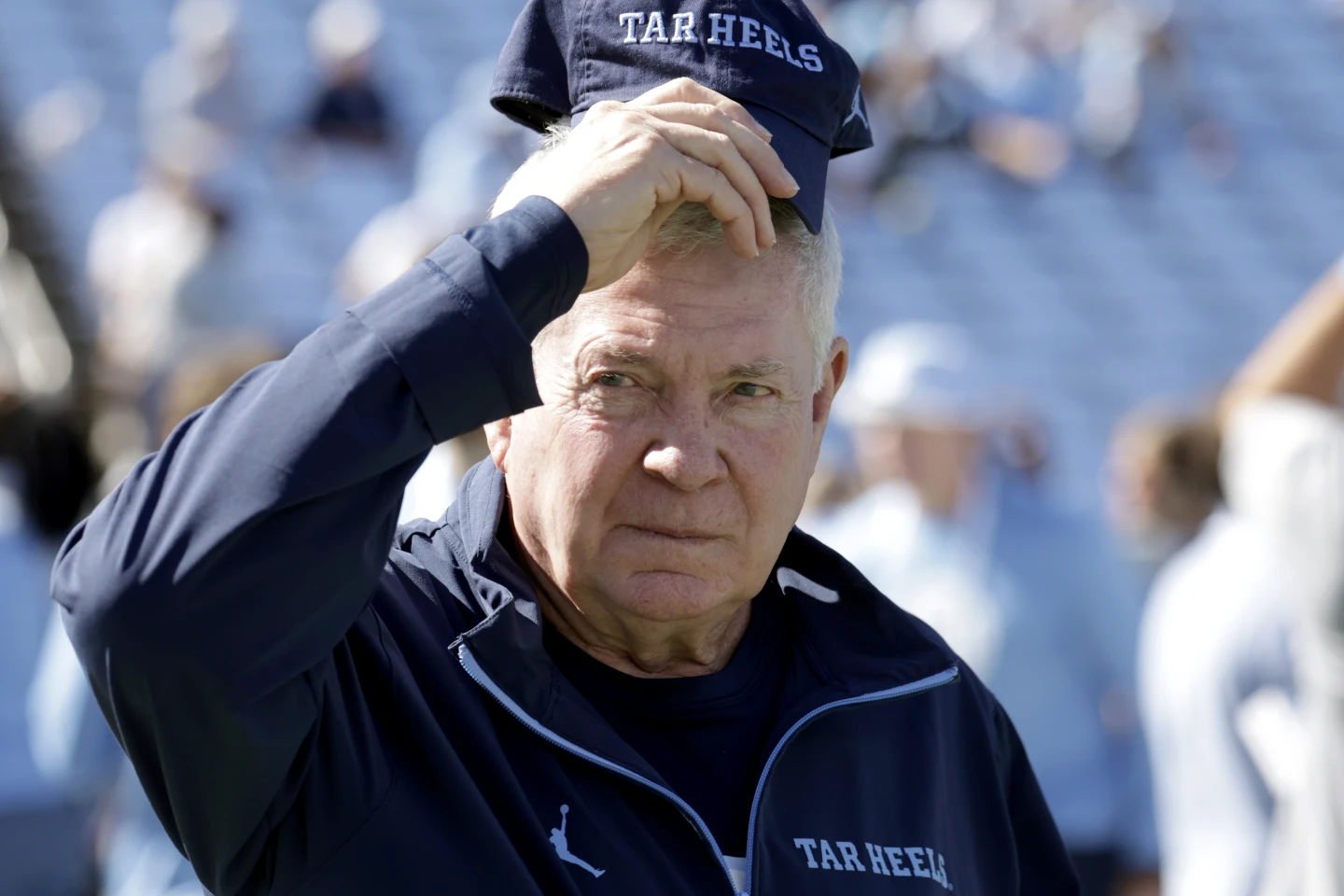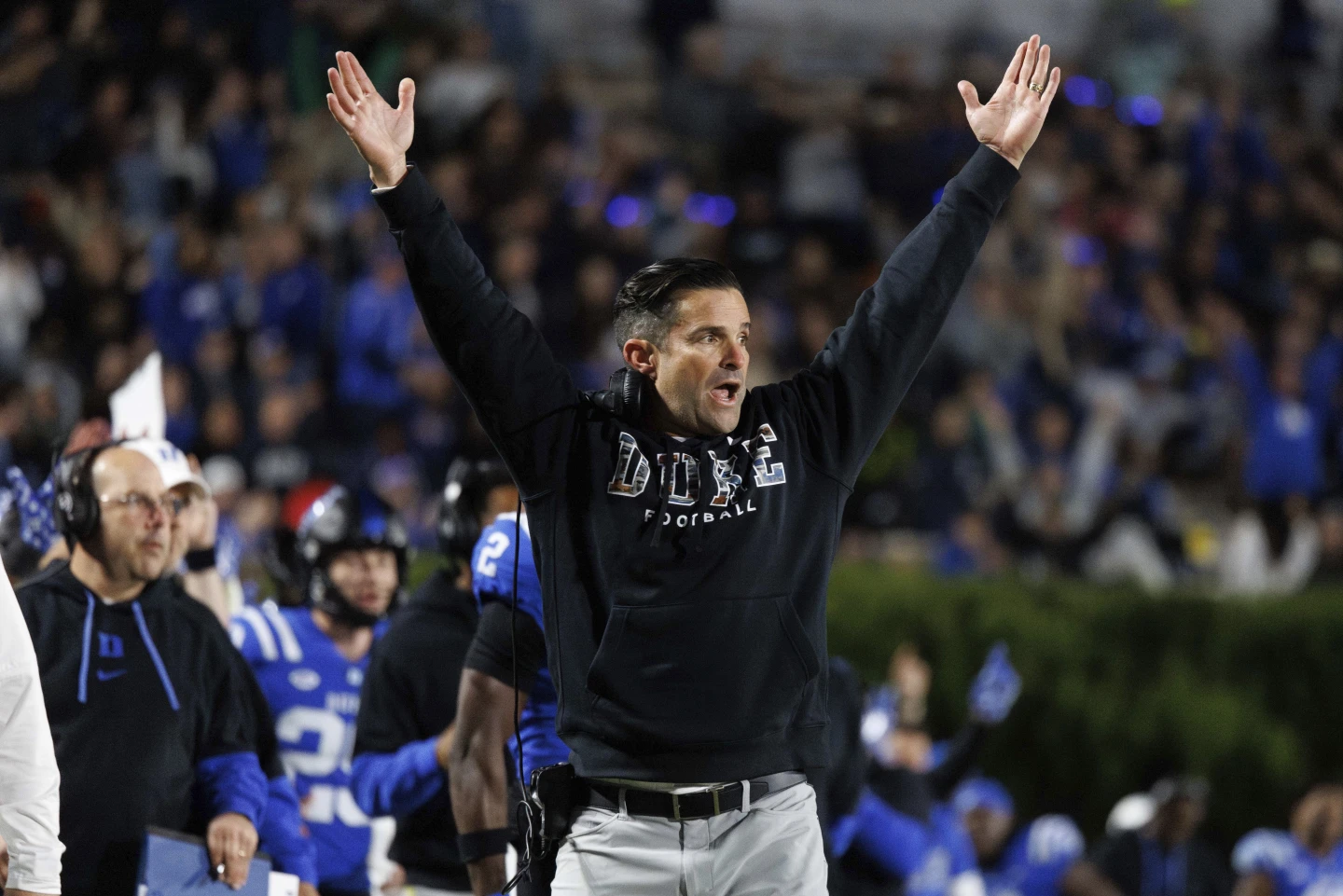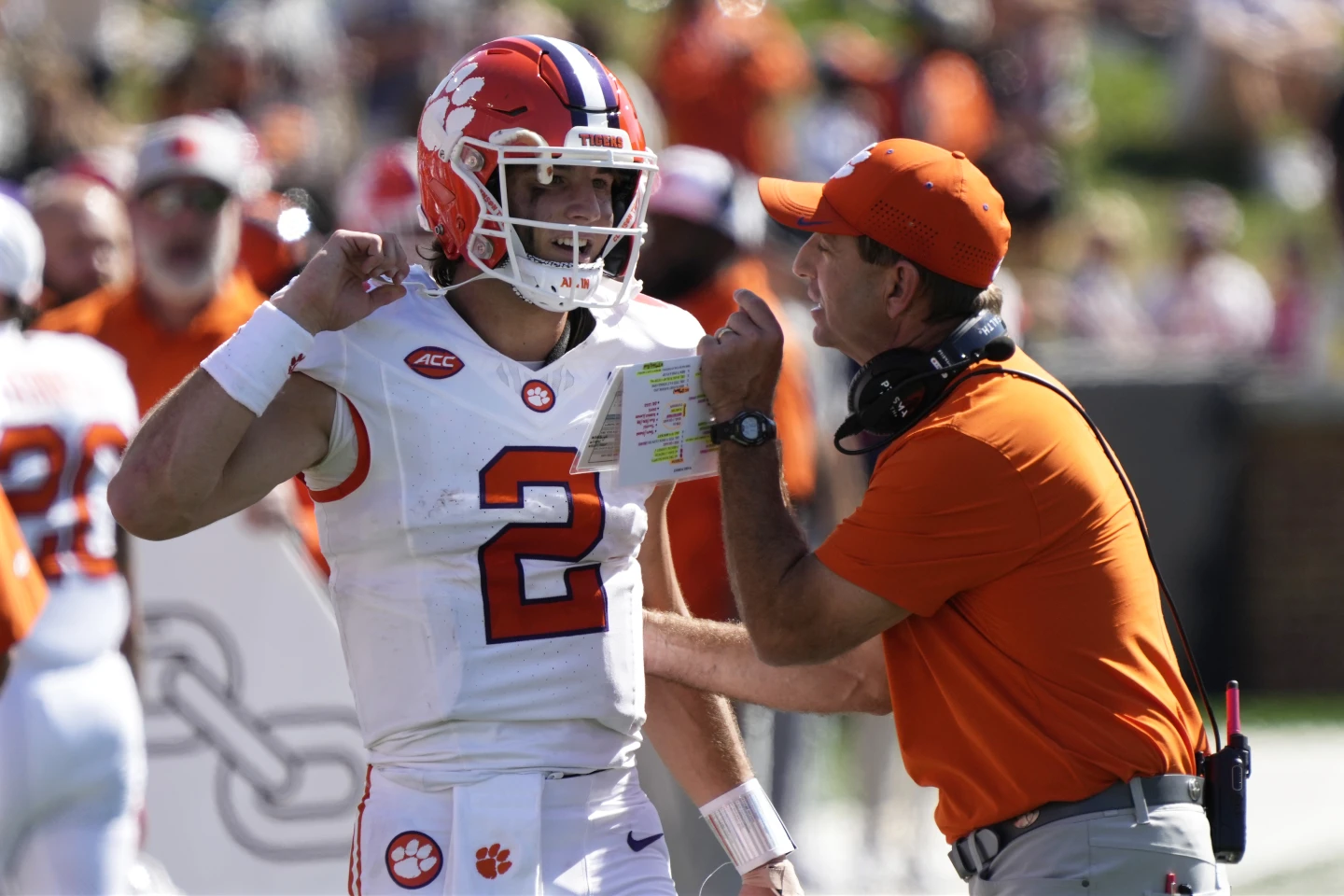Clemson coach Dabo Swinney has disagreed with many penalties during his 17 seasons in charge and has voiced his complaints, but he never expected to change the result of a game.
It’s a regular part of a college football team’s week, just like Tuesday film sessions or Friday walk-throughs: the staff reviews video of the previous game to find penalties they believe were wrong or need clarification.
They send these issues to league offices across the country, where officials look at them and provide feedback. Will a win be reversed? Of course not. So why go through this process?
“Listen, refs are people, too,” said Swinney, who has been Clemson’s coach since 2008. “None of us is perfect.”
Just last week, No. 6 Miami won a close game against Louisville, 52-45, partly because an apparent fumble by quarterback Cam Ward, which the Cardinals returned for a tying touchdown, was overturned on review. Officials decided that Ward’s arm was moving forward, making it an incomplete pass.

“I thought it was a bad call. I don’t know how you overturn it. I really don’t. This has happened multiple times, so it was disappointing,” said Louisville coach Jeff Brohm.
UConn coach Jim Mora Jr. criticized an ACC crew for what he saw as a missed pass interference call on Wake Forest that halted the Huskies’ chance to tie or take the lead late in a 23-20 loss.
“It’s on us to play better earlier, but it would sure be nice if it was a level playing field,” Mora said after the game.
Steve Shaw, the NCAA’s coordinator of officials, noted that when fans see a controversial call, they think their coach will take action. However, the reality is that more routine plays that don’t obviously impact the final score are often the ones sent in for clarification.
“They’re usually not that highlighted,” Shaw said. “Didn’t like this hold. And what it allows is the coordinator regardless of the conference to communicate with the coach.”
Such communication can lead the NCAA to discuss and even change rules, according to NCAA spokesman Greg Johnson in an email. Targeting used to result in an automatic ejection, but now there is a video review process, allowing players to stay on the sidelines. These changes were made after suggestions from coaches.

ACC supervisor of officials Al Riveron and his team review all the concerns and provide a written response within 48 hours. If there are specific plays that coaches are still upset about or need more clarification on, Riveron is available for a call.
The Big 12 Conference mentioned that its coaches can directly communicate with Commissioner Brett Yormark, chief football and competition officer Scott Draper, and coordinator of officials Greg Burks regarding officiating questions. The questions and answers that Big 12 teams receive “are visible to every coach in the league,” the conference stated.
The Big Ten and Southeastern Conference did not respond to questions from The AP.
Pat Narduzzi, coach of No. 19 Pitt, values the feedback he receives from officials on calls he disagrees with. He mentioned a penalty on the Panthers’ Rashad Battle, which was reviewed after the defensive back was penalized for a block below the waist in a 17-15 win over Cal on October 12.
“It looked like the guy fell down and we got called for it,” Narduzzi said. The ACC later informed him that the call on Battle was incorrect.
“We expect them to be perfect, they’re not going to be perfect, our players are not going to be perfect and our coaches are not going to be perfect,” said Narduzzi, whose team is off to a 6-0 start for the first time since 1982.
North Carolina’s Mack Brown, who has the most wins among active coaches with 285, explained that it’s important for coaches and players to understand how referees see penalties.
“So if we think that’s a bad call and they think it’s a good call, then tell us how, why are we teaching it wrong?” Brown said. “And then we show it to our staff and then we show it to our players and say, ‘Here’s what they said you did wrong.’ And we may say, ’We disagree, but here’s what they called.’”

Shaw, who was the SEC director of officials before joining the NCAA, mentioned that having coaches discuss even the tough calls can help teams move forward.
“It’s good dialogue,” Shaw said. “Not that they agree absolutely every time, but there’s an exchange of information.” These open discussions are mostly kept private. Major leagues can, and have, punished coaches and fined schools for criticizing officials.
Narduzzi faced a reprimand and Pitt was fined $5,000 earlier this year after winning 38-34 against West Virginia when he said, “We beat West Virginia in the Backyard Brawl, and we beat the officials, too, in one game.”
Swinney stated that reporting plays holds officials accountable, especially those who might work in important games like league title matches or College Football Playoff games. He believes that, similar to players who aren’t performing well, officials might miss out on postseason games if they make too many mistakes.
Does this process, especially after a loss, make anything better? “No,” Duke coach Manny Diaz said. “When you lose, it stinks absolutely all the time.”
